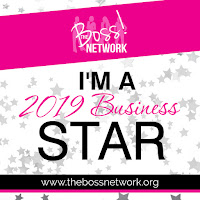The Politically Incorrect BOSS By Aundrea Y. Wilcox
The current political climate couldn't be riper for this topic. Office politics takes place in almost every business, and family business is no exception. When non-family employees feel uninvolved, disempowered or like their rights and interests are ignored, the political arena intensifies. They turn every situation into an opportunity to choose sides, which may not be best for the business. The key to minimizing the negative impacts of office politics and maintaining a neutral workplace environment is communication.
Have
regular meetings that include non-family employees where everyone can suggest
ideas and give feedback. If there is a
language barrier, offer to pay for lessons for non-family employees to learn
the family language. If that is not an
option, at least have the civility to refrain from excluding non-family
employees by speaking a language at work they cannot comprehend. Your sensitivity will go a long way.
When I
lived in Atlanta, I worked at an Italian family-owned small business for three
years. For me, it was a constant
struggle keeping the lines of communication open without coming across as
intrusive or disrespectful. I recall
having a lunch meeting with my boss and his father (the CEO) and several other
family employees at a public restaurant.
The conversation was mostly entirely spoken in Italian, so I was left
out almost completely. Nevertheless, I
maintained my composure and smiled and nodded whenever I thought it was
appropriate. When the meeting was over
(just lunch in my case), I had no idea until everyone stood up and headed for
the door. On the inside, I was upset and
hurt by this situation, but I kept on doing my job (exceptionally well I should
add) despite the alienation I felt, in hopes that things would improve.
A few
months later my boss announced he wanted to try a different career path, so he
moved out of marketing and into the sales department. Subsequently, I was promoted to Marketing
Manager. I had been patiently waiting
for this chance, since I was told when I was hired that this would likely
happen. I kept the position for two
years. Eventually, however, I started
hearing rumors that my former boss wanted to return to marketing, so it was no
surprise to me when I was laid off suddenly.
As it turned out, outside sales wasn’t his cup of tea. The marketing position that I held had been
redesigned requiring sales experience.
Go figure!
Actually,
it was a blessing. I learned a lot in
the three years that I spent working for an international company, and I was
able to secure a better paying job with more responsibility immediately. My only regret is that I never got the chance
to go to Italy, but maybe I will get that chance one day.
Government
politics at work is categorically a bad idea.
What you do in the voting booth is nobody’s business but yours. Likewise, respect your employees’ and
customers’ political positions. If
customers don’t like what you have to say, they may simply boycott your
business. This is harder to do for an
employee who may not have any other job option at the time. Consequently, they may tolerate it for a
short while, but they won’t put up with it forever. And if you continue to beat them up about
their political preferences and views, it can develop into a case of borderline
workplace harassment.
To
protect yourself and uphold political neutrality, don’t allow candidate
buttons, yard signs, posters, bumper stickers, tee shirts, or other political
paraphernalia in or around the workplace.
Also, stop the distribution of any politically themed emails between
employees on work time using work-issued equipment if you see it
happening. Bear in mind that what you
watch on television or listen to on the radio at work also says something about
your values and beliefs and it does matter.
If you have a T.V. or radio in your lobby or public waiting area, avoid
tuning it to programs that might include offensive or politically-charged
content. Don’t leave the channel tuned
to CNN or Fox News all day. Mix it up
from time to time. It won’t hurt you to
hear how the other side sees things once in a while—well, maybe just a
little.
Aundrea Y. Wilcox is also the author of the
new book, Startup
Savvy: Strategies for Optimizing Small Business Survival and Success.
To connect with Aundrea, follow her on Twitter @StartupSavvy, and Like her
Facebook Author Page, StartupSavvy. Visit startupsavvy.biz for more
insights and tips about small business ownership and management.





Comments
Post a Comment